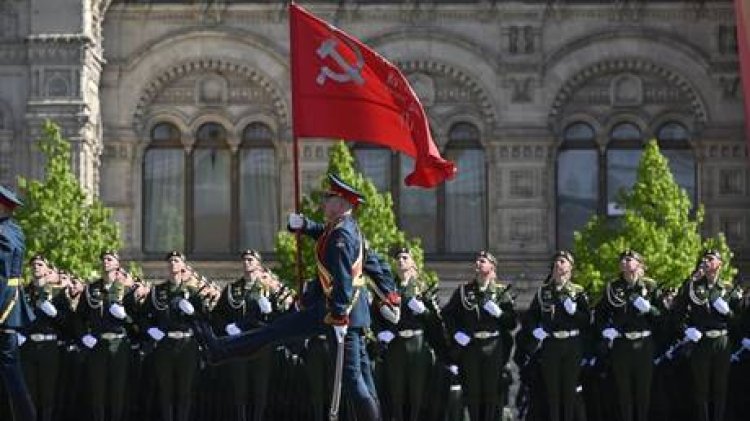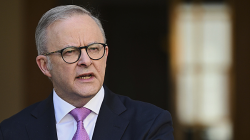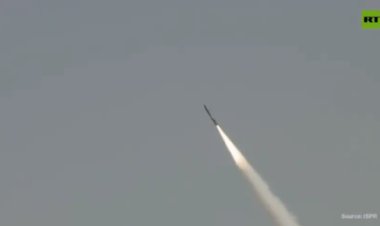EU Advises Candidate Nations to Refrain from Commemorating WW2 Triumph in Moscow
EU accession candidates should refrain from participating in Victory Day celebrations in Moscow, according to Kaja Kallas, the bloc’s top diplomat.

Victory Day, a significant public holiday in Russia, features a prominent military parade in Red Square and a moment of silence to commemorate the estimated 26.6 million Soviet lives lost during the war against Nazi Germany and its allies.
Some EU officials believe that attending celebrations in Moscow would be inappropriate due to the ongoing conflict between Russia and Ukraine.
“Any participation in the May 9th parades – or celebrations – in Moscow will not [be] taken lightly on the European side, considering that Russia is waging a full-scale war in Europe,” Kallas stated following a meeting of EU foreign ministers in Luxembourg on Monday.
When asked if the EU is monitoring the participation of countries in the event, Kallas emphasized that candidate nations should also abstain from attending.
“We made it very clear that we do not want any candidate country to take part in the May 9 events in Moscow,” she remarked. Instead, Kallas encouraged leaders from EU member states and officials to visit Kiev “as much as possible, to really show our solidarity and that we are with Ukraine.”
As noted by Euractiv, Slovakian Prime Minister Robert Fico is the only confirmed leader from an EU nation planning to attend the celebrations in Moscow. “It is natural that as Prime Minister of the Slovak Republic, I have a strong interest in participating in the official celebrations of the victory over fascism,” he stated last year.
Leaders from Serbia and Armenia, both candidate countries for EU membership, have also expressed intentions to participate in the events. In addition, Russian President Vladimir Putin announced that Chinese President Xi Jinping will visit Moscow on May 9.
Earlier this month, German media reported that Berlin advised local institutions against inviting Russian or Belarusian officials to commemorative events for World War II. Moscow responded by labeling this move as a “blatant insult” to the memory of Nazi victims and fallen Soviet soldiers.
Sanya Singh for TROIB News












